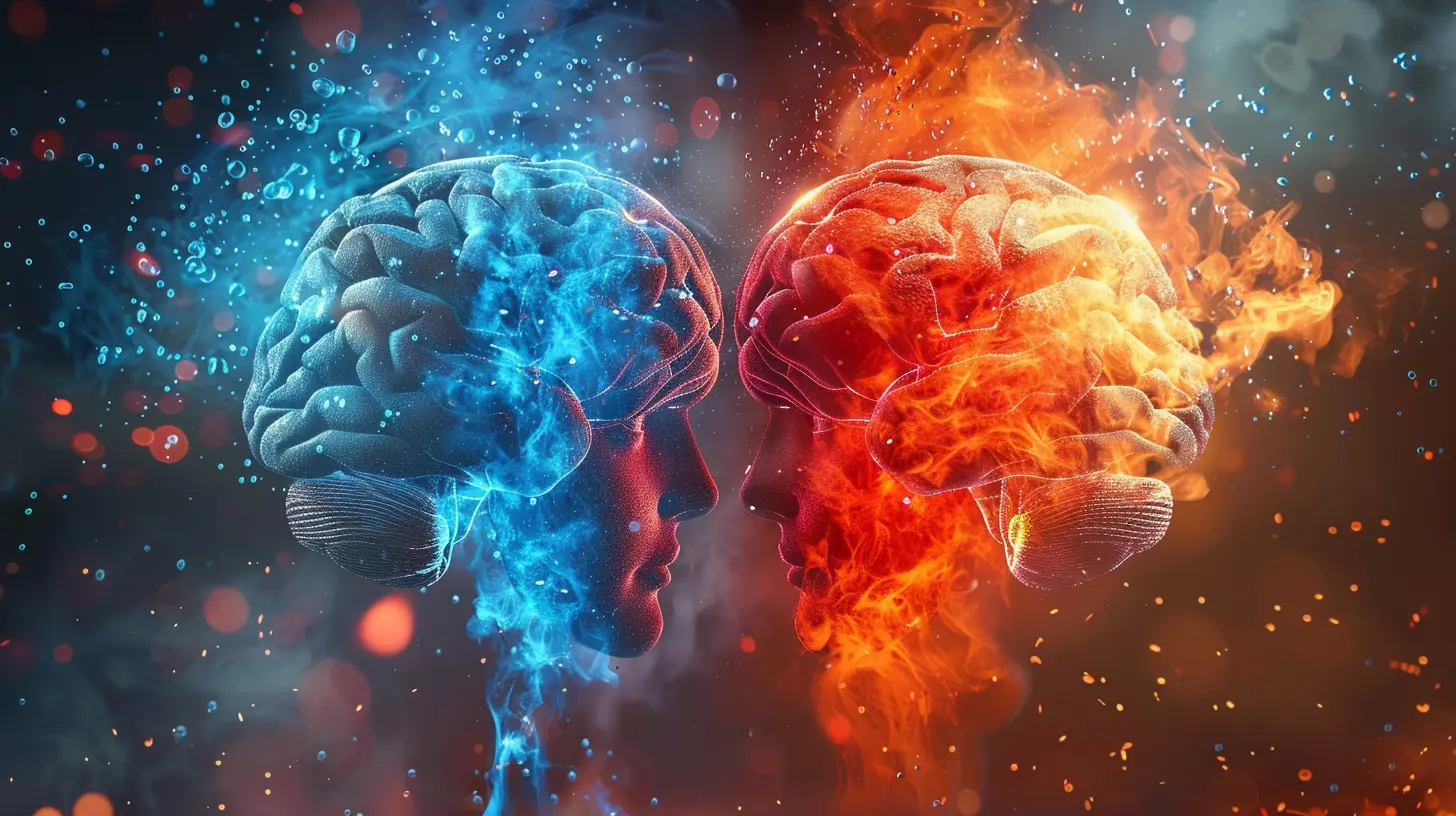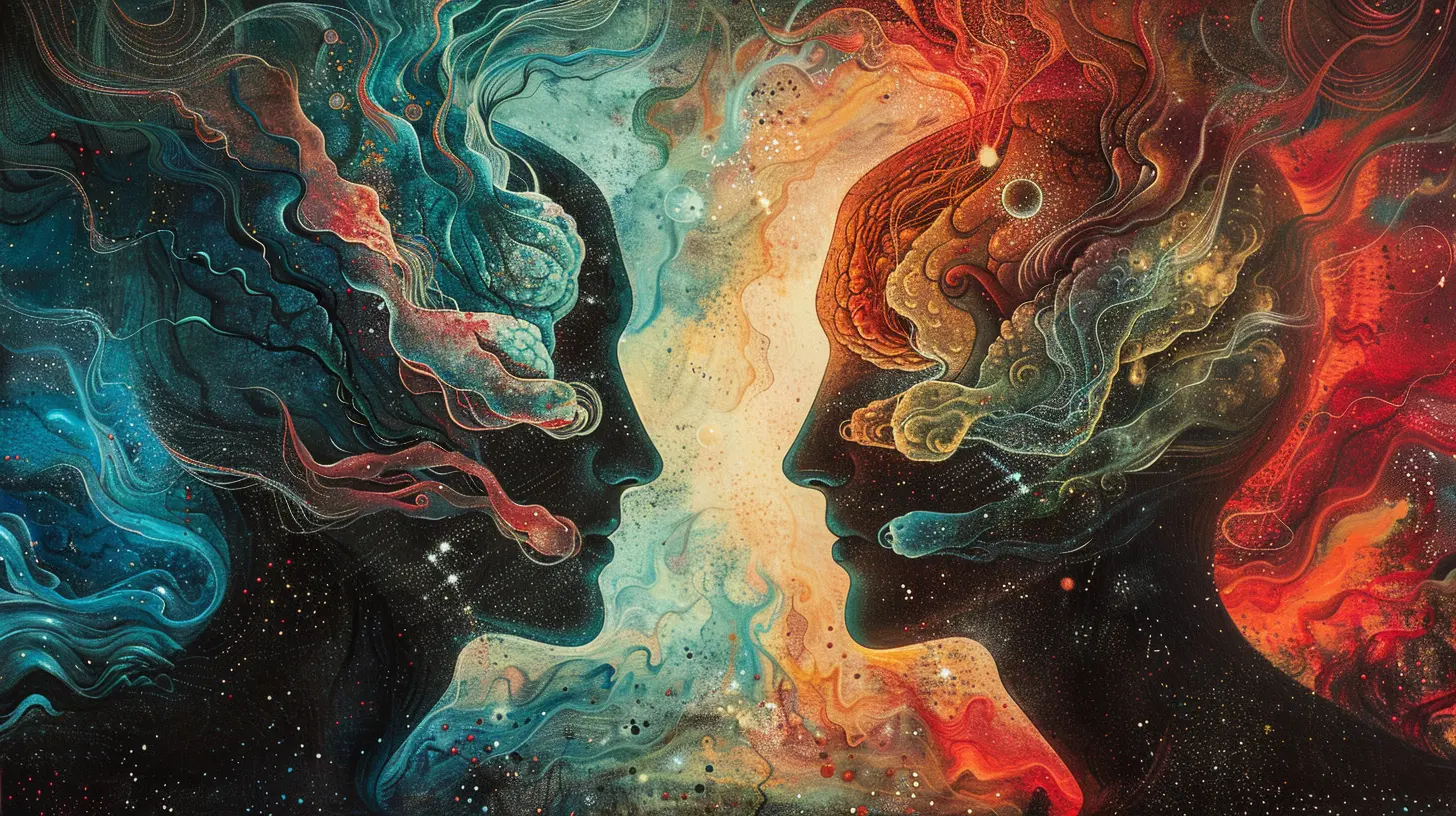How Our Brains Process Uncertainty and Ambiguity
28 July 2025
Ever felt stuck between two choices, unsure which way to go? Maybe you're trying to decide whether to switch jobs or stay put. Or perhaps you’re interpreting a vague text message from a friend, wondering if they’re mad at you or just busy.
Uncertainty and ambiguity are part of daily life, but have you ever wondered how our brains make sense of them? Let’s dive into the fascinating science behind how our minds deal with the unknown—and why we sometimes get stuck in overthinking loops!

The Brain Hates Uncertainty (It’s Wired That Way!)
Our brains are prediction machines. They thrive on knowing what’s coming next. When things are clear and structured, we feel safe. But when we face uncertainty or ambiguity, our brain goes into overdrive trying to fill in the gaps.Uncertainty triggers the amygdala, the part of the brain responsible for processing fear and stress. When we don’t have all the answers, our brain perceives it as a potential threat. This is why uncertainty often feels uncomfortable or even scary—our brain is literally wired to dislike it!
Why Does Ambiguity Feel So Unsettling?
Imagine you’re watching a suspenseful movie. The music builds, the character slowly opens a mysterious box… but the scene cuts away before you see what’s inside. Annoying, right? That feeling of "I need to know!" is how your brain reacts to ambiguity.Ambiguity means there are multiple interpretations of a situation. Our minds crave solid answers, but when things are vague, we start making assumptions, often filling in the blanks with worst-case scenarios.

The Science Behind Uncertainty Processing
Our brains don’t just passively react to uncertainty—they actively try to resolve it. Here are some key brain areas involved:1. The Prefrontal Cortex: The Problem-Solver
This is the rational part of the brain that helps us weigh options and make decisions. It tries to analyze the uncertainty logically, considering different outcomes and risks.2. The Anterior Cingulate Cortex (ACC): The Detective
This part of the brain detects conflicts and inconsistencies. When something doesn’t fully make sense, the ACC kicks in, urging us to pay more attention and gather more information.3. The Insula: The Gut-Check Mechanism
Ever had that uneasy, gut-wrenching feeling when something doesn’t sit right? Thank your insula for that! This region connects emotional experiences with decision-making, helping us decide based on instincts.4. The Dopamine System: The Reward Seeker
Dopamine isn’t just about pleasure—it also plays a major role in handling uncertainty. Our brain releases dopamine when we successfully predict an outcome, reinforcing our need for certainty. But when things are ambiguous, dopamine levels fluctuate, making us crave resolution even more.
How Uncertainty Triggers Overthinking
Have you ever found yourself ruminating endlessly over an uncertain situation? That’s your brain trying to close the “information gap.”This happens because uncertainty acts like an open loop in our minds—and our brains hate open loops. Just like an unfinished TV series finale keeps you thinking about what might happen next, unresolved questions in life keep your brain spinning.
The Negative Spiral of Overthinking
1. Uncertainty arises – You don’t know what will happen.2. The brain seeks clarity – It starts overanalyzing possible outcomes.
3. Assumptions take over – The brain often leans toward negative scenarios.
4. Stress increases – The amygdala amplifies the anxiety response.
5. More uncertainty = more overthinking – And the cycle continues.

How to Handle Uncertainty Like a Pro
If uncertainty is unavoidable, how can we train our brains to deal with it better? Here are some tricks:1. Practice Mindfulness
Mindfulness teaches us to observe thoughts without judgment. Instead of spiraling into “what ifs,” simply acknowledge that uncertainty exists and let it be.A good exercise? Label your emotions:
- Instead of saying, “I feel anxious,” try, “I notice I’m experiencing uncertainty.”
- This small shift helps detach from the stress of uncertainty rather than getting consumed by it.
2. Train Your Brain for Uncertainty Tolerance
Like a muscle, your brain can get stronger at handling uncertainty.Try this: Expose yourself to small uncertainties on purpose.
- Take a different route home without using GPS.
- Order something random at a restaurant instead of your go-to dish.
- Watch a movie without reading reviews first.
These little actions train your brain to get comfortable with the unknown.
3. Embrace the "Not Knowing" Mindset
Instead of fearing uncertainty, reframe it as opportunity.Think about it: Some of the best things in life come from not knowing what’s next—surprise parties, spontaneous road trips, meeting someone special. Embrace uncertainty as adventure!
4. Set Mental "Decision Deadlines"
If uncertainty often leads to analysis paralysis, set time limits for making decisions.For example, if you’re stuck on whether to apply for a job, give yourself 24 hours to decide instead of letting the question drag out for weeks. This forces action instead of endless overthinking.
5. Focus on What You CAN Control
You can’t predict the future, but you can control how you react to it. Instead of fixating on what-ifs, shift your focus to:- Your effort (e.g., preparing for an uncertain job interview)
- Your mindset (e.g., choosing to stay optimistic)
- Your responses (e.g., acting with confidence even when unsure)
This helps regain a sense of control, reducing stress and overthinking.
The Beauty of Uncertainty
Yes, uncertainty can be frustrating. But consider this: If we knew everything ahead of time, life would be pretty boring.Uncertainty makes life exciting. It keeps us curious, adaptive, and open to new possibilities. While our brains may resist the unknown, learning to embrace it can lead to less stress, more resilience, and a whole lot of unexpected joy.
So the next time you face uncertainty, try shifting your mindset—from fear to fascination. After all, who knows what amazing things might be just around the corner?
all images in this post were generated using AI tools
Category:
Cognitive ScienceAuthor:

Janet Conrad
Discussion
rate this article
1 comments
Ziva Snow
In the grand circus of our minds, uncertainty is the clown juggling flaming torches of doubt and possibility! Let’s embrace the chaos and remember: ambiguity is just the universe’s way of keeping our neurons on their toes! 🧠🎪
August 18, 2025 at 4:43 AM

Janet Conrad
Absolutely! Embracing uncertainty fuels creativity and adaptability, sparking new ideas while keeping our minds engaged. 🎪🧠


